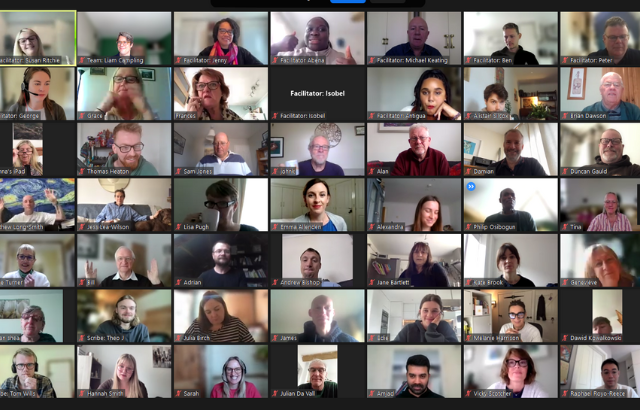Queen Mary University of London and Trade Justice Movement Collaborate on Trade and Climate Assembly
This initiative brings together 60 UK citizens, selected to be representative of the diversity of the wider population and its regions, to deliberate on the critical and urgent question of how trade policy should support climate action. This assembly represents a significant effort to ensure that public voices are heard in shaping policies that impact both trade and climate change.
This Assembly, the final phase of which is taking place at Queen Mary University of London this weekend (29th – 30th June), will result in recommendations for UK politicians looking at trade and climate policy.
Addressing an Urgent Need
Trade policies have far-reaching implications for governments’ ability to address climate change effectively. Despite the urgency highlighted in the March 2023 report from the Intergovernmental Panel on Climate Change (IPCC), the UK government’s current trade agreements are projected to increase carbon emissions. This is a complex and contested issue, and the findings of this Assembly are intended as a valuable contribution to the political discussion in the UK and beyond.
Leadership and Expertise
The project is led by Professor Liam Campling, an expert in international business and development at Queen Mary University of London. With nearly two decades of research on trade and sustainable development, Professor Campling has extensively studied the relationships between EU trade policy, value chains, and social and environmental standards. He has advised regional governmental bodies, the EU, and UN agencies, and has been involved in bilateral and WTO trade negotiations, including the first WTO agreement to use trade rules for environmental outcomes.
Professor Campling is co-organising the Assembly with the Trade Justice Movement, a coalition of more than 60 UK charities and trade unions working for trade rules which deliver for people and planet.
Project Partners
The Trade and Climate Assembly is supported by two key research partners:
- MutualGain: Partnering with QMUL and TJM to deliver the Citizens’ Assembly, MutualGain specializes in building social capital through effective training, consultancy, and research. They have conducted citizens’ assemblies for diverse clients across the UK.
- Sortition Foundation: Responsible for recruiting 60 citizens from across the UK to participate in the Assembly. They have extensive experience in recruitment, selection, and sortition for various organizations, including local councils and national parliaments.
Advisory Board and Evidence Committee
The project is overseen by an advisory board comprising experts from the UK government, business, and civil society. The board ensures that the information discussed by participants is accurate and balanced and helps ensure that the recommendations are considered by stakeholders and policymakers.
Funding and Support
The project has been made possible through the generous support of Queen Mary University of London, the Samworth Foundation, Unison, and the Waterloo Foundation.
Join the Conversation
Stay tuned for more updates from Queen Mary University of London and the Trade Justice Movement as we continue to explore the vital intersection of trade policy and climate action.

